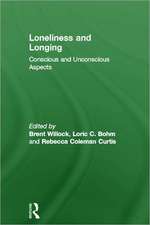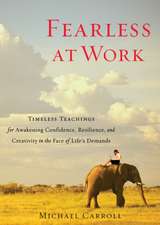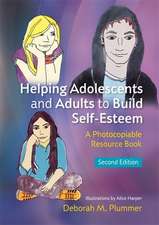Ethical Maturity in the Helping Professions
Autor Michael Carroll, Elisabeth Shawen Limba Engleză Paperback – 14 dec 2012
Preț: 355.95 lei
Preț vechi: 434.04 lei
-18% Nou
Puncte Express: 534
Preț estimativ în valută:
68.12€ • 70.69$ • 56.94£
68.12€ • 70.69$ • 56.94£
Carte disponibilă
Livrare economică 22 februarie-08 martie
Preluare comenzi: 021 569.72.76
Specificații
ISBN-13: 9781849053877
ISBN-10: 1849053871
Pagini: 384
Ilustrații: Illustrations
Dimensiuni: 152 x 228 x 24 mm
Greutate: 0.52 kg
Ediția:New.
Editura: Jessica Kingsley Publishers Ltd
ISBN-10: 1849053871
Pagini: 384
Ilustrații: Illustrations
Dimensiuni: 152 x 228 x 24 mm
Greutate: 0.52 kg
Ediția:New.
Editura: Jessica Kingsley Publishers Ltd
Notă biografică
Michael Carroll is a fellow of the British Association for Counselling, a chartered counselling psychologist, and an accredited Executive Coach and Executive Coach Supervisor. He works as a coach, supervisor, trainer and consultant to organisations in both the public and private sectors specialising in the area of employee well-being. He has published widely in the areas of workplace counselling and counselling supervision. He is co-editor of Integrative Approaches to Supervision also published by Jessica Kingsley Publishers. He currently resides in Somerset, UK. Elisabeth Shaw is a counselling psychologist, couple and family therapist, who also provides clinical supervision and management development across diverse professional groups. She has had over 15 years of experience in the field of ethics and philosophy and currently consults at the St James Ethics Centre, Sydney, as well as being a member of a number of industry based ethics committees. She has published work in the fields of relationship therapy, supervision and ethics. She currently resides in Sydney, Australia.
Cuprins
Acknowledgements. Foreword by Professor Tim Bond. Preface. Introduction. Overview of the book. Part One. The Foundations of Ethical Maturity: History, Philosophy and Science. 1. Setting the Scene: The moral landscape 2. Ethical maturity and unethical behaviour. 3. A very, very short story of ethics. 4. Socrates and Aristotle: Moral character and moral action. 5. The brain and ethics. 6. Relational ethics 7. What is ethical maturity? Part Two. The Six components of ethical maturity. 8. Component 1: Creating ethical ethical sensitivity and mindfulness. 9. Component 2: The process of ethical decision making. 10. Component 2: Maximising choices: Free will, accountability and responsibility. 11. Component 2: Conscious ethical discernment and decision making. 12. Component 2: The influence of the unconscious on ethical decision making. 13. Component 3: Implementing ethical decisions. 14. Component 4: Ethical accountability and moral defence. 15. Component 5: Ethical sustainability and peace. 16. Component 6: Learning from experience and integrating new learning into moral character. 17. Training in ethical maturity. Part Three. Applied ethical maturity in challenging contexts. 18. Organisations, contexts, ethics and maturity. 19. Bought and sold: The ethics of gifts. 20. The ethics of research: Enhancing knowledge and being ethically mature by Professor Tim Bond. 21. And finally... References
Descriere
How do we, as humans, arrive at what we call morally or ethically good or bad decisions? What processes are involved in making ethical decisions? Is there a developmental process involved in moving towards ethical maturity? What do insights from education, psychology, business studies, neuroscience, biology, primatology and other professions tell us about ethical processes?

















